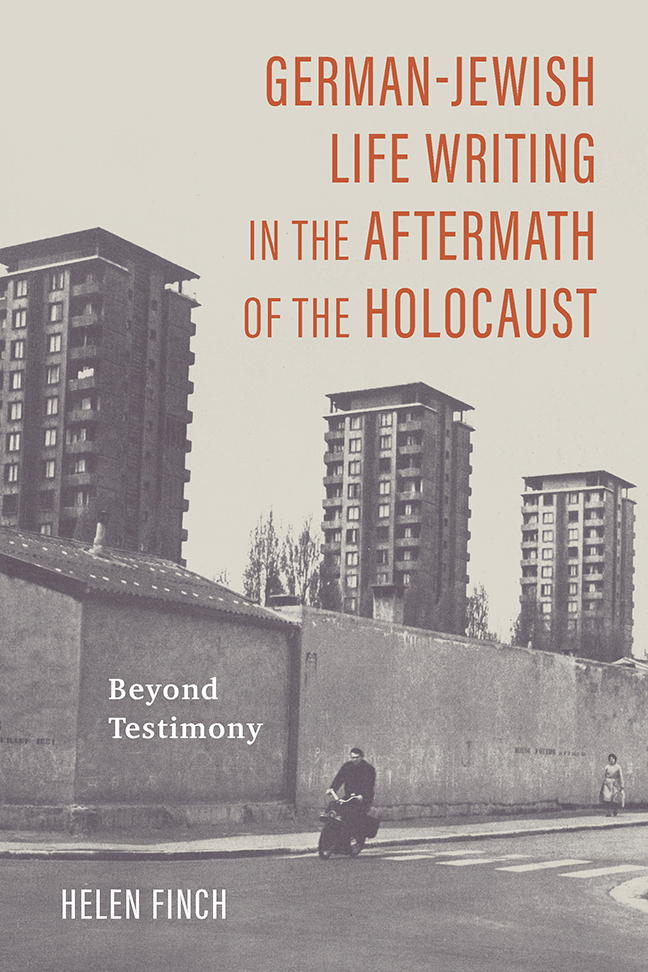Book contents
- Frontmatter
- Dedication
- Contents
- Acknowledgments
- List of Abbreviations
- Introduction
- 1 Modernist Marginalization in Exile: H. G. Adler in the 1950s and 1960s
- 2 Solidarity and Trauma between Austria and the GDR: Fred Wander from the 1960s to 2006
- 3 Transnational Transgression: Edgar Hilsenrath from 1980 to 2018
- 4 Feminist Rage: Ruth Klüger in the New Millennium
- Conclusion
- Bibliography
- Index
Conclusion
Published online by Cambridge University Press: 10 January 2024
- Frontmatter
- Dedication
- Contents
- Acknowledgments
- List of Abbreviations
- Introduction
- 1 Modernist Marginalization in Exile: H. G. Adler in the 1950s and 1960s
- 2 Solidarity and Trauma between Austria and the GDR: Fred Wander from the 1960s to 2006
- 3 Transnational Transgression: Edgar Hilsenrath from 1980 to 2018
- 4 Feminist Rage: Ruth Klüger in the New Millennium
- Conclusion
- Bibliography
- Index
Summary
In this book I have analyzed a disparate set of literary texts by four German-Jewish survivor-witnesses to the Holocaust. I have argued that they form a significant corpus that bears testimony to the neglected history of feeling in the postwar era, a history that runs counter to, and in tension with, German narratives of Vergangenheitsbewältigung. I noted that, despite the very different circumstances under which these survivors wrote their testimony, and the very different genres in which they wrote, certain themes and styles stand out, which I have termed characteristic of a “metatestimonial” mode of poetics. These may include an emotive writing style that not only archives negative feelings but also mobilizes them as an uncomfortable force for social critique. They also include transnational and cross-historical attempts to contextualize the writers’ experiences in the Holocaust, often written at a time when such comparisons were tabooed. They include attempts to connect to and continue traditions of narration that have been disrupted by the Holocaust, be that the modernism espoused by Adler, the attempts to connect to oral forms of Jewish ghetto narrative practiced by Wander and Hilsenrath, or the attempt to reanimate a lost tradition in Jewish and female writing in Kluger's work. And finally, they are marked with the traces of trauma, no matter how long after the painful events they are published. The texts are marked by a traumatic temporality, where the narrating survivor-subject is constantly returned to the time of persecution, leading to narratives that are non-linear, fragmented and at times incoherent. Hence, I argued, literary life writing after the Holocaust is always untimely. I have argued that this untimeliness demonstrates the facile nature of a linear narrative of Vergangenheitsbewältigung.
As I argued at the beginning of this book, the four survivor-authors did not view themselves as a cohort. As we have seen in the close readings of the texts, the biographies, poetics, politics, and reception of the four authors were also very different. It was not my intention in this text to blur the important distinctions between these four highly original writers, their very different transnational life trajectories, and their distinctive critiques of the continuities between Nazi past and postwar present.
- Type
- Chapter
- Information
- German-Jewish Life Writing in the Aftermath of the HolocaustBeyond Testimony, pp. 192 - 196Publisher: Boydell & BrewerPrint publication year: 2023

